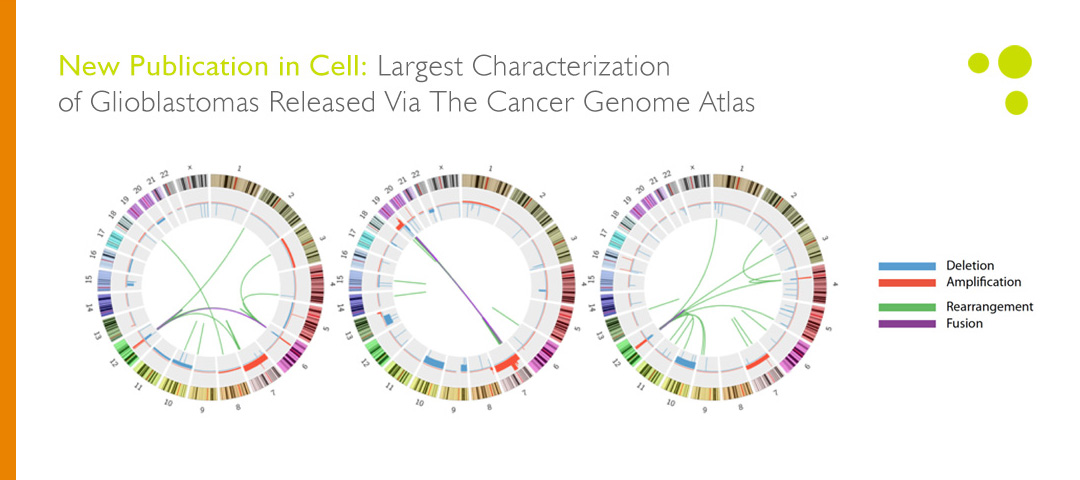Largest Genetics Catalog of Deadliest Brain Tumor Released
 isbscience.org/news/2013/10/11/largest-genetics-catalog-of-deadliest-brain-tumor-released/
isbscience.org/news/2013/10/11/largest-genetics-catalog-of-deadliest-brain-tumor-released/
By Varsha Dhankani
Glioblastoma multiforme (GBM) is the most common and deadliest of malignant primary brain tumors in adults. Because of its lethality, GBM was selected as the first brain tumor to be sequenced as part of The Cancer Genome Atlas (TCGA), a comprehensive project funded by the National Cancer Institute (NCI) and the National Human Genome Research Institute (NHGRI) to map the genomes of more than 25 types of cancer. Institute for Systems Biology (ISB) is among seven data analysis centers participating in TCGA.
In a TCGA research published on Oct. 10, 2013, in the journal Cell, scientists, including several from ISB, released a new catalog of genetic-mutation data for more than 500 GBM cases – more than double the cases characterized for the initial reference data set published in 2008. The new catalog builds on the original set with data collected using higher-resolution and more accurate sequencing technology. What’s unique about this catalogue is that in addition to DNA sequences of the patients, it includes measurements of various products of DNA transcription and translation like microRNAs, messenger RNAs, and proteins to allow researchers to study cancer biology comprehensively at multiple levels of the system. Because evidence shows that GBM tumor growth can adapt in response to molecular treatments, it’s especially crucial for researchers to understand GBM tumor biology and the mechanisms that trigger growth in order to work toward finding effective treatments.
ISB’s unique contribution to the research involved drawing correlations between the mechanisms that turn off genes and protein levels in the tumor. Scientists at ISB were able to investigate how microRNAs – molecules that are not directly involved in protein synthesis, indirectly affect the quantities of proteins synthesized, hence affecting normal functioning of the body.ISB also developed an open-access software tool that allows researchers to study the correlations between microRNAs and proteins in detail.
The study also revealed that effects of mutations at the molecular level are not always clear at the level of biological processes, and hence, cancer therapies that target processes might not yield similar efficacy of targeting the mutated gene itself, challenging the current notion in cancer therapeutics.
With open access to the catalog, TCGA hopes to encourage researchers to conduct integrative analyses of genomic alterations, protein activity profiles, and clinical treatment and outcomes. This will advance the collective understanding of GBM and pave the way to discovering new diagnostics and therapeutics.





